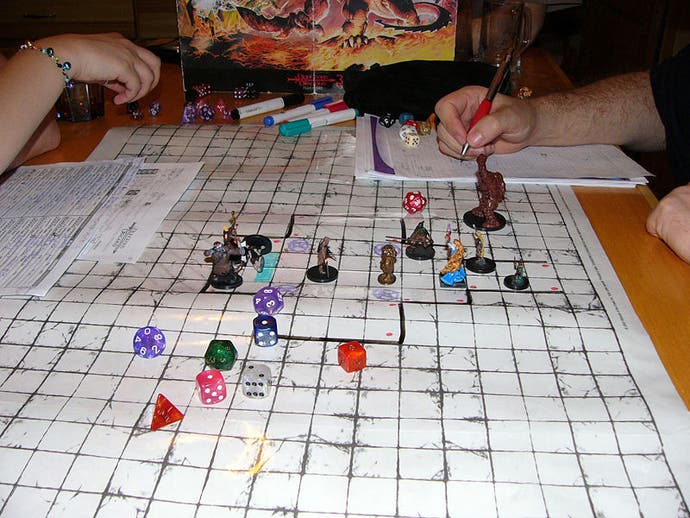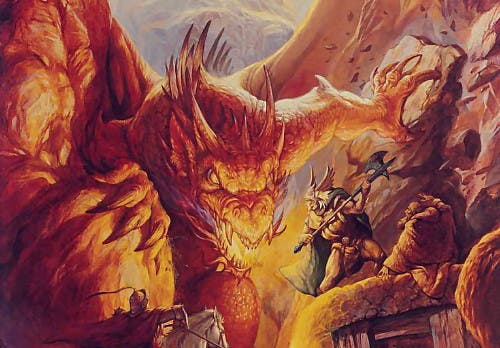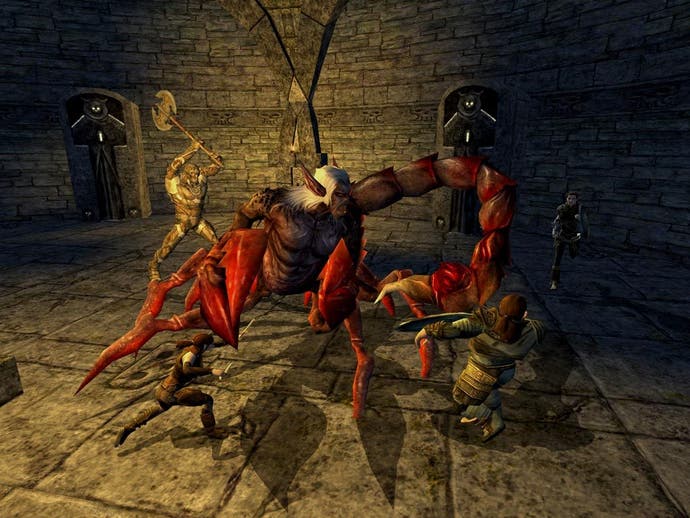Gary Gygax: 1938-2008
Looking back on the D&D creator's life and influence.
Gary Gygax died, last week, on 4th March, 2008, after being diagnosed with an abdominal aortic aneurysm. Although the gaming press was swift to offer eulogies, his death was greeted by a relatively muted indifference in the mainstream media - initially greeted by relatively brief, tucked away, news stories, and, a few days later, by short obituaries that noted his role as the co-creator of Dungeons and Dragons. That muted indifference is an utter travesty, because Gary Gygax is one of the most important individuals of the twentieth century. His influence on the sum of humanity goes far beyond polyhedral dice and black-clad teenagers sitting in darkened rooms, and it extends well beyond the 20 million people who played the game that he created, or who read one of the many fantasy novels that he wrote. His influence on western culture is far more profound and important than just games and the people who play them.

Which isn't to say that his influence on games and the people who play them isn't profound. Dungeons and Dragons evolved out of Gygax's love of wargaming, and the chances are that if you're reading this, you already know the story: he inaugurated Gen Con in 1967 in his basement, before creating the fantasy wargame Chainmail, with Jeff Perren, in 1973. That was the same year in which he founded TSR with Don Kaye, and it was the following year, 1974, that he created the original D&D with Dave Arneson, before it was expanded into a second line of Advanced D&D products in 1977. After boardroom shenanigans ended his involvement with the product he created in 1984, he would continue to create games, such as Dangerous Journeys and Lejendary Adventure, as well as writing fiction, such as the Greyhawk Adventures or Gord the Rogue series, among others.
But it is D&D for which he will justifiably be remembered. Quite apart from the millions of people who would go on to play it, the game's reach and Gygax's influence was extended by the pen-and-paper genre which it created. It is a genre that would blossom and bloom in a multitude of different ways - from the low fantasy of Warhammer Fantasy Roleplay to sci-fi steampunk in Space 1889; from slapstick sci-fi in Paranoia to a fusion of fantasy and sci-fi in Shadowrun; and from the sheer horror of Call of Cthulhu to the emo horror in the worlds of White Wolf - not to mention the all-encompassing GURPS. But it was Dungeons and Dragons that penetrated the mainstream consciousness. Like Sellotape and Hoover before it, D&D became synonymous with role-playing games. That, unfortunately, also made it synonymous with devil worship and virgin sacrifice in some quarters. It's not worth dwelling here, except, maybe, to mention the brilliantly idiotic Mazes and Monsters (starring a young Tom Hanks), and the superb parody Devil Doll, by Daniel Clowes. But those are just a few of many mainstream moments for D&D (my own favourite is Gygax's Futurama cameo).

Moral panics aside, however, D&D changed the world in which we live. Its influence on videogames is obvious. There's all of the officially licensed games, for a start - a surprising proportion of which are, like the Gold Box series, the Baldur's Gate games, and Planescape: Torment, utterly brilliant. There are also all those other classic sword and sorcery RPGs that took their inspiration from Gygax's invention, such as Wizardry, or Ultima, which in turn gave rise to Japanese console RPGs, like Dragon Quest and Final Fantasy. But in many ways, the entire videogame industry owes its existence to Gary Gygax - and not simply because, one way or another, almost every modern videogame is a role-playing game of some kind.
Sure, a lot of the very earliest videogames had very little to do with pen-and-paper role-playing games - games like Spacewar!, for example, or Pong. And many modern-day videogames apparently have little to do with Gelatinous Cubes or Kobolds, or Carrion Crawlers. But the success of D&D was an essential ingredient in the growth of the medium. Games such as Adventure, Dungeon, and Rogue, created an appeal that went beyond shooting games and sports sims, and something more enduring than the quick thrills of the coin-op. By exerting such a massive influence on games, Gygax has, indirectly, exerted a similarly pronounced influence on all aspects of popular culture which have, in turn, been influenced by games - movies, music, and art. More importantly, because these early D&D-influenced games were designed for university mainframes, they also inspired early game creators and shape the entire geek subculture that has shaped the world as we know it today.

And in shaping so much of early geek culture, and so much of modern videogame culture, Gygax's influence extends far beyond the immediate reach of D&D. His real legacy is inspiring an entire generation of geeks - who came of age in the various dotcom booms. And in shaping their philosophy, he has helped build the modern world: virtual worlds; social networking; user-generated content; on-demand media. In what shape or form would these things exist today if Gygax hadn't lived? Even the BBC has entered this brave new world. When Time declared its person of the year was you, it was just acknowledging the fruition of a user-collaborative philosophy that first found form in Gary Gygax's original D&D.
Anybody who has ever played D&D or one of the many pen-and-paper RPGs that it inspired; anybody who has played a videogame; anybody who has seen a movie or listened to music that was inspired by any element of any of those games; anybody who's ever entered a virtual world, or posted content online, or downloaded something to watch whenever they want. These are people whose lives have been enriched by Gary Gygax. All of those things may have happened without him. But not in the same way. That's why he bestrides the second half of the twentieth century, and the start of this, one as a cultural colossus. Gary Gygax didn't solve world hunger, or initiate world peace, or save us all from global warming. But he made the world a better place. The world is richer and more interesting because he lived. Now that he has passed away, it is much poorer for it.
